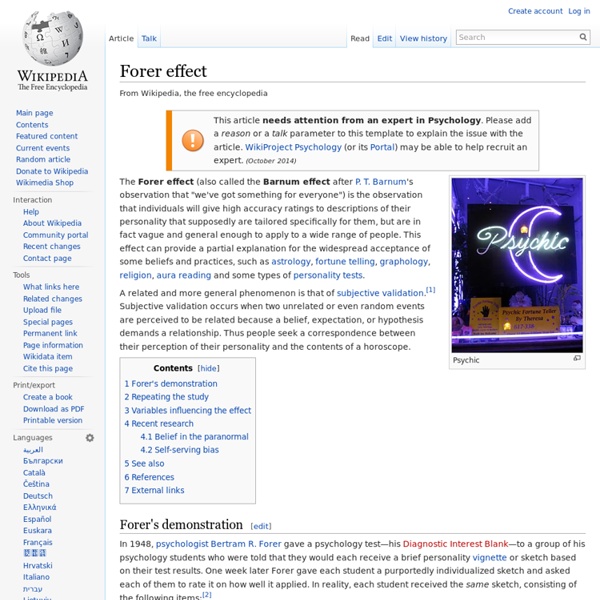5 Logical Fallacies That Make You Wrong More Than You Think
The Internet has introduced a golden age of ill-informed arguments. You can't post a video of an adorable kitten without a raging debate about pet issues spawning in the comment section. These days, everyone is a pundit. But with all those different perspectives on important issues flying around, you'd think we'd be getting smarter and more informed. Unfortunately, the very wiring of our brains ensures that all these lively debates only make us dumber and more narrow-minded. For instance ...
Kohlberg's Moral Stages
W.C. Crain. (1985). Theories of Development. Prentice-Hall. pp. 118-136. An outstanding example of research in the Piagetian tradition is the work of Lawrence Kohlberg.
Who Are You? (And What do You Think of Me?)
The New Hire: What Do I Need to Know About This Job Candidate—and How Can I Find It Out? Every Sunday, America's corporate titans share their hiring strategies with . "I have a very good antenna about people," Starbucks founder Howard Schultz told the "Corner Office" column. "First off, I want to know what you're reading and then I'll ask you why. Tell me what work-life balance means to you." Abbe Raven, CEO of A&E Television Network, privileges her "gut reaction."
Man Accused of Decapitating Victim with Guitar String for Voodoo Ritual
by Breitbart News1 Apr 201485 James Paul Harris kept the head of 49-year-old James Gerety to talk to it after Gerety was killed sometime in March or April of 2011, police said. Harris, 29, pleaded not guilty Monday and his trial was set for June 23, The Topeka Capital-Journal reported ( During a preliminary hearing March 14, Harris’ former girlfriend, Bobbie Williams, testified that he told her he shot Gerety in the stomach, tortured him for two days and then cut off his head.
Top 10 Common Faults In Human Thought
Humans The human mind is a wonderful thing. Cognition, the act or process of thinking, enables us to process vast amounts of information quickly. For example, every time your eyes are open, you brain is constantly being bombarded with stimuli. You may be consciously thinking about one specific thing, but you brain is processing thousands of subconscious ideas. Unfortunately, our cognition is not perfect, and there are certain judgment errors that we are prone to making, known in the field of psychology as cognitive biases.
Piaget's theory of cognitive development
Piaget's theory of cognitive development is a comprehensive theory about the nature and development of human intelligence, first developed by Swiss developmental psychologist Jean Piaget (1896–1980). It is primarily known as a developmental stage theory but, in fact, it deals with the nature of knowledge itself and how humans come gradually to acquire, construct, and use it. To Piaget, cognitive development was a progressive reorganization of mental processes as a result of biological maturation and environmental experience.
The Top 10 Psychology Studies of 2010
The end of 2010 fast approaches, and I'm thrilled to have been asked by the editors of Psychology Today to write about the Top 10 psychology studies of the year. I've focused on studies that I personally feel stand out, not only as examples of great science, but even more importantly, as examples of how the science of psychology can improve our lives. Each study has a clear "take home" message, offering the reader an insight or a simple strategy they can use to reach their goals , strengthen their relationships, make better decisions, or become happier. If you extract the wisdom from these ten studies and apply them in your own life, 2011 just might be a very good year. 1) How to Break Bad Habits If you are trying to stop smoking , swearing, or chewing your nails, you have probably tried the strategy of distracting yourself - taking your mind off whatever it is you are trying not to do - to break the habit.
Cambridge police investigating human remains in two locations
CAMBRIDGE, Mass. —A suspect arrested after the discovery of human remains in a discarded duffel bag is due in court Monday, when authorities are expected to answer some of the questions that followed the discovery in a Cambridge neighborhood better known for technology research. Watch NewsCenter 5's report The remains have been identified, however, the victim’s name is being withheld pending notification of next of kin. A duffle bag containing the first remains was found at a property on Loughery Way near Binney St. and 6th St. in Cambridge,
Implicit memory
Evidence and current research[edit] Advanced studies of implicit memory began only a few decades ago. Many of these studies focus on the effect of implicit memory known as priming.[1] Several studies have been performed that confirm the existence of a separate entity which is implicit memory.



